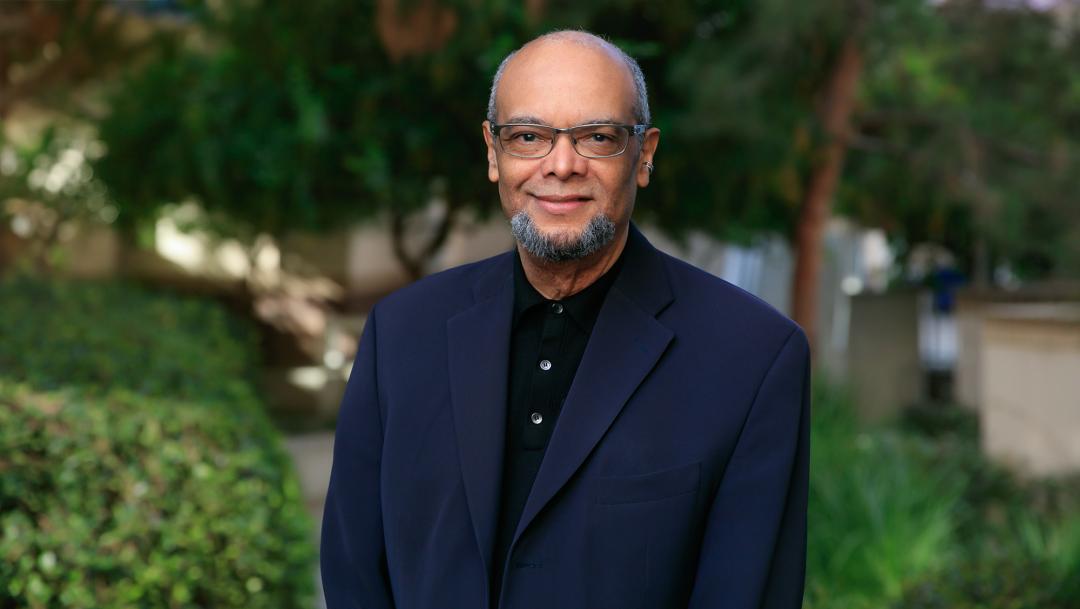
Distinction recognizes professor's contributions to understanding of stress and disease, aging
Julian F. Thayer, a distinguished professor of psychological science at the University of California, Irvine, has been elected to the National Academy of Medicine, one of the highest distinctions accorded to professionals in the medical sciences, healthcare and public health. He is one of 100 new members announced today.
The National Academy of Medicine recognizes leaders in diverse fields, including health and medicine; the natural, social and behavioral sciences; and beyond. Through its domestic and global initiatives, the academy works to address critical issues in health, medicine and related policy and inspire positive action across sectors.
“Congratulations to Dr. Thayer on this exceptional achievement,” said Hal Stern, UCI provost and executive vice chancellor. “His interdisciplinary research has advanced our understanding of the determinants of health and wellness, and he richly deserves election to the National Academy of Medicine.”
Thayer said: “I feel deeply honored by the National Academy of Medicine election. Such recognition reflects on our colleagues, collaborators and trainees who contributed to impactful research on health psychology. Clearly, this distinction further encourages us to give our very best efforts in the next stages of our research.”
The academy chose Thayer for his groundbreaking research and theory in how stress, including racism, affects autonomic nervous system dynamics and influences disease and aging. Specifically, he has mapped out the complex mechanisms of how stress-related dysregulation of the vagal-neural axis can lead to early cardiovascular disease.
“We couldn’t be happier for or prouder of Dr. Thayer, and it’s no surprise that his exceptional talents and accomplishments have been recognized,” said Jon Gould, dean of the School of Social Ecology. “We are delighted for him.”
Thayer’s research specializes in health psychology, psychopathology, health disparities, heart rate variability, emotions, stress and neuroimaging. It’s wide-ranging but all revolves around understanding the connection between the heart and the brain. Among his diverse interests is compassion. Thayer studies the body’s longest nerve, called the vagus, as it relates to compassion. The vagus nerve carries signals between the brain and the heart and digestive system.
He has found that people who are more compassionate exhibit more activity along their vagus nerve. For example, those with greater vagus nerve activity, as indexed by the variability between heartbeats, were more forgiving of the transgressions of others when asked to recall such transgressions. Other research has shown that individuals with greater vagus nerve activity were less likely to assign blame to others who have committed a transgression against them.
More generally, Thayer said, activity of the vagus nerve and the associated brain regions is linked with feelings of well-being and safety.
He holds a Ph.D. and a master’s in psychophysiology from New York University. His numerous accolades include the 2023 Distinguished Scientist Award from the American Psychosomatic Society and the Society of Behavioral Medicine’s 2019 Distinguished Scientist Award, the most prestigious honor granted by the organization.
Thayer also is a fellow of UCI’s Center for the Neurobiology of Learning and Memory. With his election to the National Academy of Medicine, UCI is now home to 49 members of the National Academies of Sciences, Engineering and Medicine; 39 members of the American Academy of Arts & Sciences; 16 members of the National Academy of Inventors; and five members of the National Academy of Education.
Contact:
Mimi Ko Cruz
Director of Communications
949-824-1278